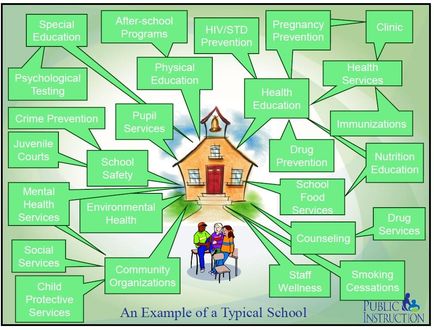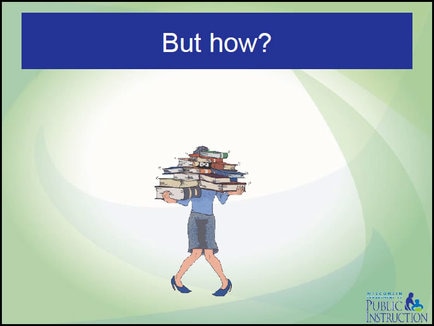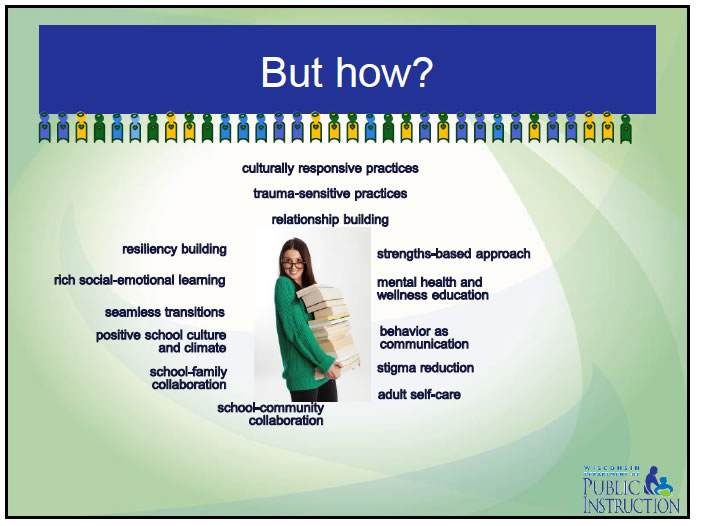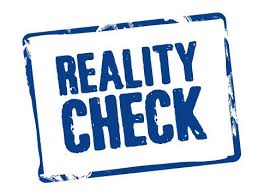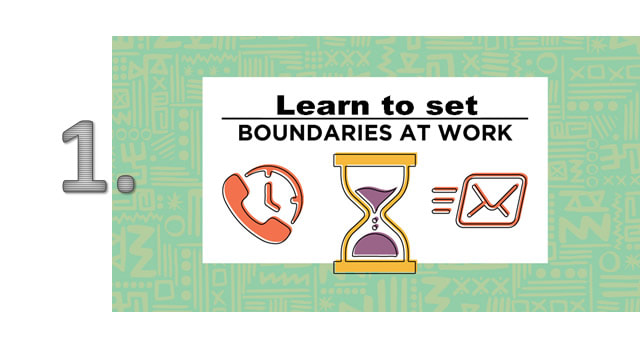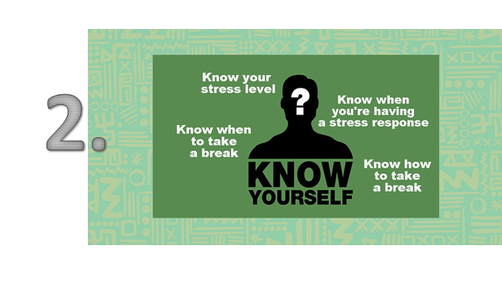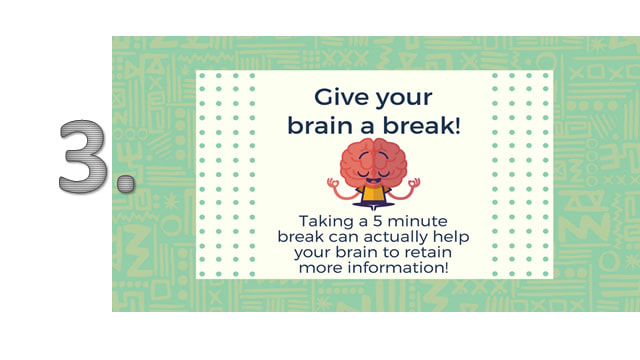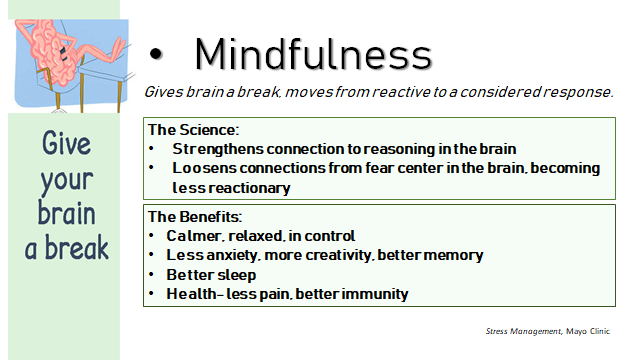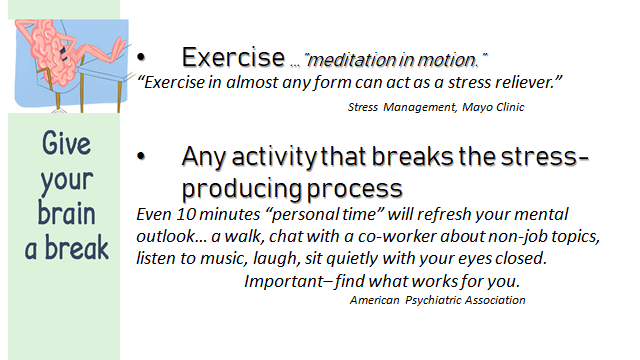Stress and Self Care for educators
All jobs have stress, but for teachers the work is getting harder and the stress harder to shake. Recent research conducted by Penn State places teacher job stress on par with nurses and physicians. And roughly half of teachers in a George Washington University study agree with this statement: "The stress and disappointments involved in teaching at this school aren't really worth it."
The ResearchResearch findings:
|
|
And we feel it...
Stress filters down from the top-- demands are made at the national and state levels, initiative requirements are placed on administrators and districts, and increased expectations are made of teachers.
... even DPI recognizes the stressors districts and teachers face.
The graphics below are part of a presentation on the Wisconsin School Mental Health Framework (DPI, Spring 2016). The mental health initiative recognizes that increased demands made on districts can have an impact on staff mental state of mind and stress levels. (Click graphic to enlarge)
|
Take care of yourself |
Changes need to be made to the system.
Until that happens, take care of yourself. |
|
Job Demands As educators we try to be everything for everyone, that’s why it says “learn” to set boundaries… it's a big learning curve for some of us. It can also mean saying “no” to a new initiative or expectation until something has been taken off your plate. Ask, “What are we taking away?” Boundaries with students Read this article for tips and support |
|
Know when to take a break. If you’re trying hard to rationalize your over the top reaction, you’ve probably already had a stress response. A break is needed. Know what a break is for you. A temporary fix might be going for a short walk around the building, closing the door and letting the reasoning center of the brain come back in control. |
|
Break the stress cycle in your brain. Shutting down the amygdala so reasoning and emotional regulation can take over. A 5 minute break would be great... but it’s not like you can leave the building or put a classroom on hold to get your 5 minutes in. “Giving you brain a break” means taking care of your brain so it responds differently to stress. |
How do you "give your brain a break"?
|
What can mindfulness
do for you? It can give your brain a break, and move from a reactive to a considered response. Even 30 seconds of mindfulness can have a positive effect. Click to learn more... |
|
Your brain can get a break from almost any activity that breaks the stress producing process.
Even 10 minutes... a brief walk, chatting with a co-worker about a non-job topic, just sitting quietly with your eyes closed and breathing. The goal: take a break from sustained mental activity or stress. That advise is from the American Psychiatric Association. |
SelfCare is not selfish |
Take a look at your list of stressors and make your own mental health a priority.
It’s not selfish. It's okay to say no. If something new is added to your plate, ask what's going to to taken off. We need to be healthy--physically and emotionally-- if we’re going to support our students. |
Final note... |
If the thought of adding a self help program, regardless of its value, may seem too much.
|
Work-Life BalanceNigel Marsh gives advice on creating balance-- particularily balancing demands of work with living a satisfying life.
This clip emphasizes NOT adding another regiment to an already crowded life, but looking for the small things. In Marsh's words, "it's the small things that matter." |
TEDxSydney - Nigel Marsh - Work Life Balance is an Ongoing Battle
|
Sources:
Listen to Us: Teacher Views and Voices, Center for Educational Policy, 2016; http://www.cep-dc.org/displayDocument.cfm?DocumentID=1456
Teacher Stress and Health, Robert Wood Johnson Foundation, 2016; http://www.rwjf.org/en/library/research/2016/07/teacher-stress-and-health.html
Components of a Self-Care Practice, Faculty of Medicine, University of British Columbia, 2014; http://postgrad.med.ubc.ca/2014/10/30/components-of-a-self-care-practice/
Listen to Us: Teacher Views and Voices, Center for Educational Policy, 2016; http://www.cep-dc.org/displayDocument.cfm?DocumentID=1456
Teacher Stress and Health, Robert Wood Johnson Foundation, 2016; http://www.rwjf.org/en/library/research/2016/07/teacher-stress-and-health.html
Components of a Self-Care Practice, Faculty of Medicine, University of British Columbia, 2014; http://postgrad.med.ubc.ca/2014/10/30/components-of-a-self-care-practice/
